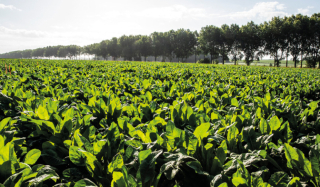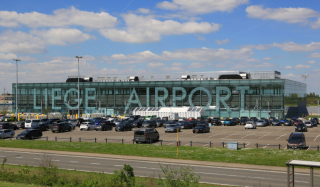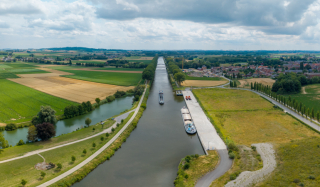
At the initiative of the Walloon agri-food cluster Wagralim, numerous Walloon stakeholders, brought together under the Strategic Innovation Domain 5 (SID5 / “Agri-food chains of the future and innovative environmental management”), are establishing the Wifst, a new food research institute in Wallonia.
A walloon showcase
"The five universities of the Wallonia-Brussels Federation, along with four accredited research centers and the Walloon agri-food cluster Wagralim, have decided to create a joint (virtual) institute: the Wallonia Institute of Food Science and Technology (Wifst)," says Professor Yvan Larondelle, president of the Belgian Nutrition Society and general coordinator of Foodwal, a research portfolio with a budget of 12 million euros, partner of this new institute.
"The aim of the Wifst is to federate and energize Walloon scientific and technological research in the field of food and nutrition."
And expertise in this field is well established in Wallonia, as demonstrated by the international spring school co-organized a few days ago at UNamur by Wagralim and Foodwal, with the support of Wallonie-Bruxelles International and Awex. It was during this international spring school that the creation of the new institute was announced.
Three main missions
"The Wifst has set three main missions," continues Prof. Larondelle. "The first is to develop new research activities in fields of interest to us, particularly at the European level."
"The second objective is to encourage the Wifst's university research labs towards a stronger innovation dynamic — that is, to make them more open to applied goals. When the opportunity arises, of course. At their core, these are labs mainly interested in fundamental research."
"Lastly, with this new institute, the goal is also to strengthen Wallonia’s position on the European map as a region of excellence in food and nutrition sciences. We have the critical mass, the high-quality stakeholders, and qualified scientists and industrial partners equipped with cutting-edge tools. Everything is in place to attract multiple partners. What we need now is to make our resources and expertise more visible. The institute will help achieve that."
Ten partners
The new institute brings together the five universities of the Wallonia-Brussels Federation, four research centers (CER group, Multitel, Celabor and CRA-W), as well as the Wagralim agri-food cluster.
"We should also mention the Strategic Innovation Initiative FoodBooster, which plays an important role in the Wifst," adds Prof. Larondelle.
What is the relevance of creating such a new institute? "Quite simply, to capitalize on the achievements of the five Strategic Innovation Initiatives (IIS) launched under the DIS 5," explains Dr. Stephane Khonen, coordinator of the SII Protewin. "But also to ensure the continuity of the dynamics initiated within that framework. These IIS have only a limited lifespan. The Wifst will make it possible to multiply future research and innovation initiatives in the field of agri-food chains. A field in which we truly excel," he concludes.
Source : article de Christian Du Brulle pour Daily Science avec le soutien de Wallonie-Bruxelles International.







